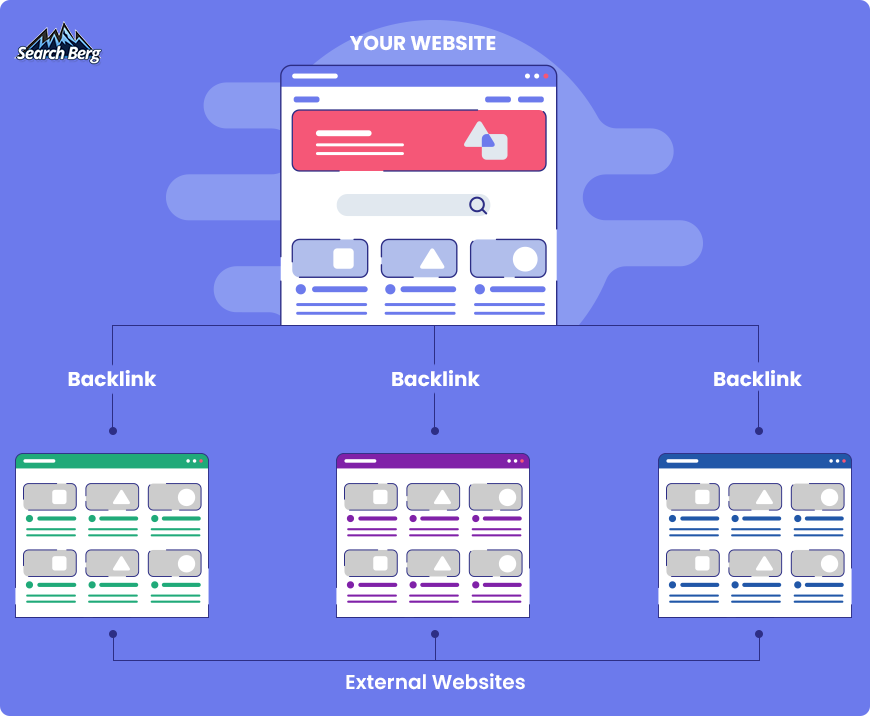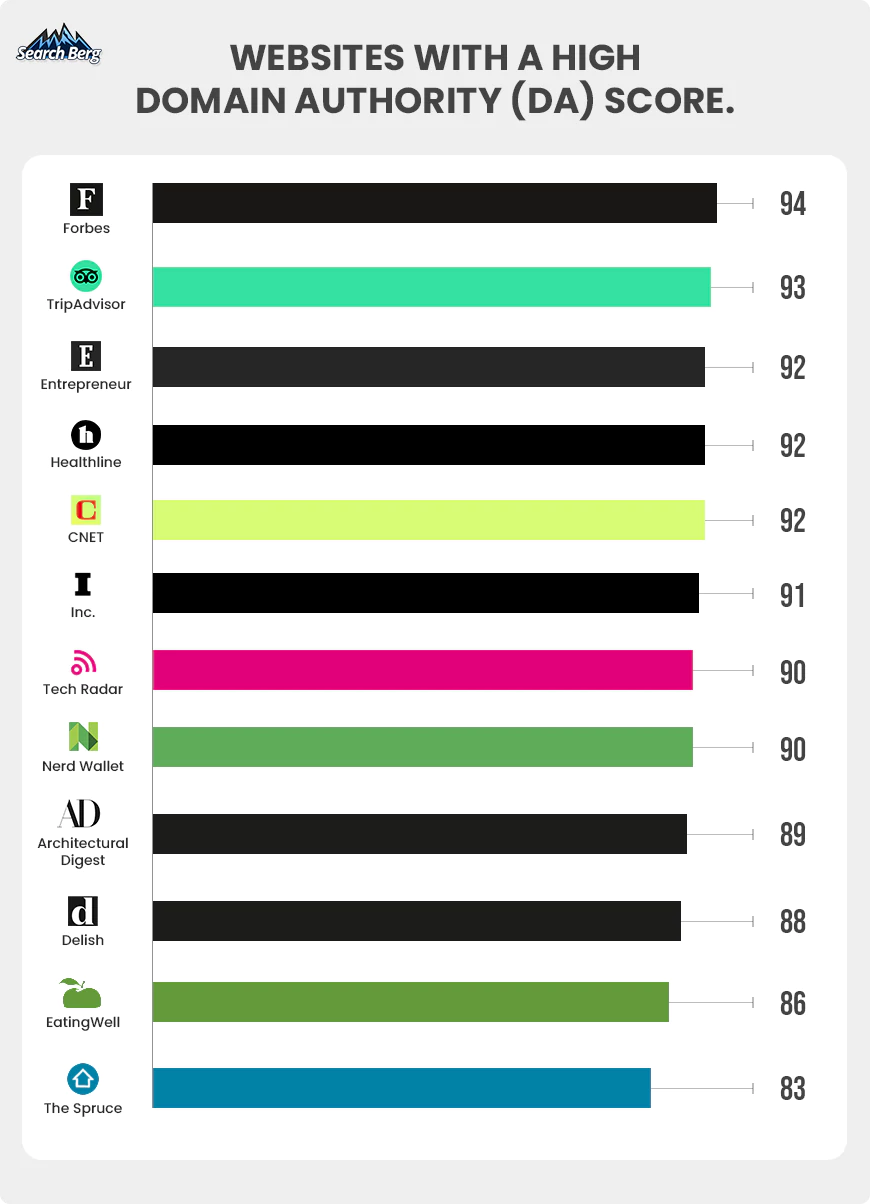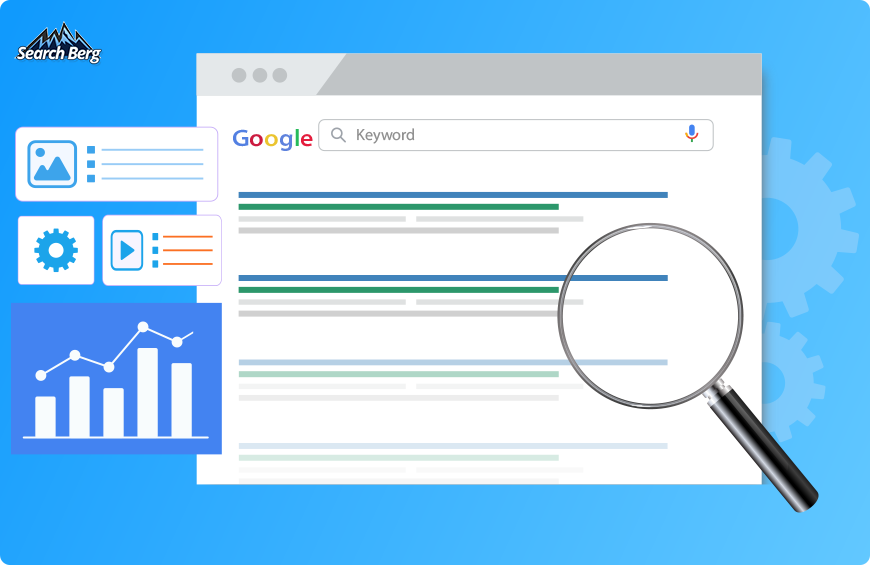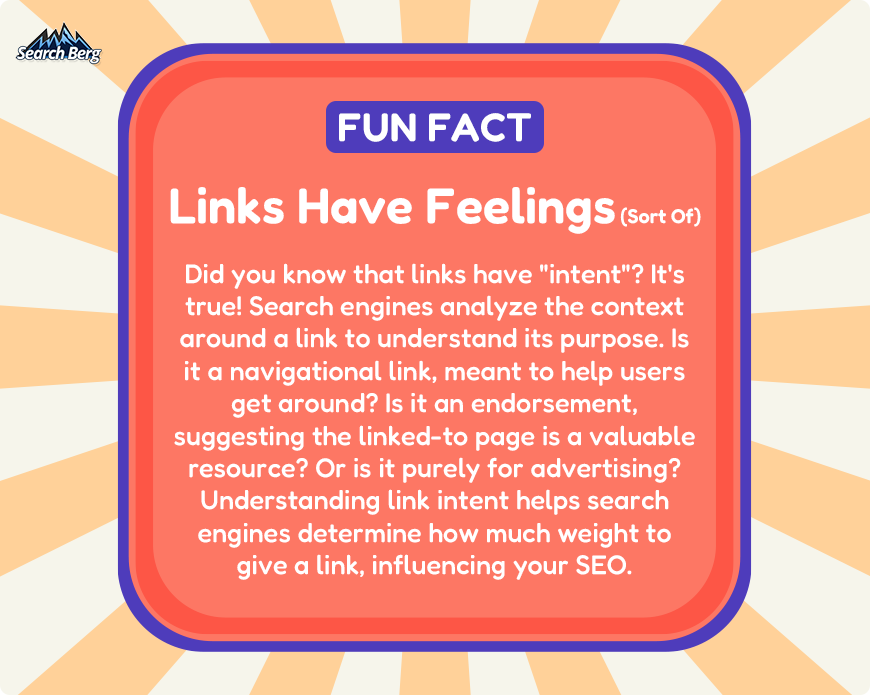Why is Link Building Important for SEO?
Say you’ve just published an incredible piece of content. It’s insightful, engaging, and meticulously optimized for search engines. You sit back, eagerly anticipating a flood of organic traffic. But… crickets.
What went wrong?
You may have overlooked one vital element: link building (also known as backlink building).
Even the most brilliant content can get lost without a network of links pointing to it. Links act as signposts, guiding search engines and users to your website. They’re a vote of confidence from other websites, signaling that your content is valuable and worth sharing.
The more high-quality links you have, the higher your website will rank in search results. It’s that simple.
But link building is more than just a numbers game. It’s the art of building relationships, establishing authority, and becoming a trusted resource in your industry.
In this blog, we’ll take a closer look at the reasons why link building services are essential for SEO success. We’ll explore the different types of links, the benefits they offer, and the strategies you can use to acquire them.
Are you ready to watch your website climb Google search engine results pages (SERPs)? Let’s make it happen.
What Exactly is Link Building?

Before we dive into the “why” of link building, let’s get crystal clear on the “what.” It’s easy to get lost in the jargon, but at its core, link building is a simple concept.
Link building is the process of acquiring hyperlinks from other websites to your own. These hyperlinks are simply clickable text or images that, when clicked, take a user to another page or website. In the context of backlink building, we’re focused on getting other websites to link to pages on your website.
These links act as signals to search engines. When Google’s crawlers (automated programs that scan the web) encounter a link to your website on another site, they interpret it as a vote of confidence. It’s like that website is saying, “Hey Google, this website has valuable information that you should pay attention to.”
The more of these “votes” you have from quality websites, the more authoritative your website appears to search engines. This increased authority can lead to higher rankings in search results, which means more visibility and organic traffic for your website.
Link Building in Action
Let’s move beyond the theory and see how link building plays out in the real world.
Here are three scenarios demonstrating the power of links from the perspective of your audience:
Example 1: The Tech-Savvy Homeowner
A homeowner is looking to upgrade their home security system. They come across a blog on a popular home automation website that reviews the latest smart security devices. The article highlights the benefits of a particular video doorbell and includes a link to your online store where it’s sold.
The homeowner, impressed by the features and positive review, clicks the link, browses your website, and ultimately purchases the doorbell along with a compatible smart lock.
Example 2: The Busy Parent
A busy parent is looking for educational toys for their child. They find a blog on a reputable parenting website that recommends a subscription box for STEM activities. The post highlights the benefits of the subscription box and includes a link to your website where parents can sign up.
The parent, intrigued by the educational value and convenience of the subscription box, clicks the link and subscribes to your service.
Example 3: The Pet Lover
A pet owner is looking for healthy treats for their dog. They find an article on a trusted pet care website that discusses the benefits of natural dog chews. The article mentions your company’s all-natural dog chew products and includes a link to your online store.
The pet owner, impressed by the focus on natural ingredients and positive customer reviews, clicks the link and places an order for a variety pack of chews.
See how this works?
By getting your product/service/brand featured on a trusted, reputable, and popular website, you essentially win the online lottery.
Recommended Read: Top 8 Link Building Strategies to Boost Your eCommerce Site’s Ranking
Good Backlinks vs. Bad Backlinks
When businesses first learn about backlink building, they get excited and want to make the most of it. Understandable! But it’s important to go about this game smartly and patiently.
For starters, you must understand the difference between good backlinks and bad backlinks.
You’ll only earn traffic via a backlink if the external site linking to you also enjoys high traffic. Otherwise, if their own site barely attracts any visitors, what do you think you’ll walk away with? Crickets, perhaps, but certainly not quality traffic.
Good backlinks have a high domain authority (DA) score. This metric, developed by Moz, predicts how well a website will rank in search engine results. It’s scored on a scale of 1 to 100, with higher scores indicating greater authority.
Websites with a high DA score are generally considered more trustworthy and influential. They’ve earned their authority through factors like:
- High-Quality Content: They consistently publish informative, valuable, and engaging content.
- Relevance:They focus on a specific niche or industry and are recognized as experts in their field.
- User Experience: They offer a positive user experience with easy navigation, fast loading times, and mobile-friendliness.
- Age: They’ve been around for a while and have built a strong online presence over time.
- Backlink Profile: They have a strong backlink profile with numerous links from other high-DA websites.
When you earn a backlink from a high-DA website, it’s like receiving a powerful endorsement. It signals to Google that your website is also credible and relevant, which can significantly boost your search engine rankings.
What are some high-DA websites?

The higher the DA score, the better the site’s rankings. And the better their rankings, the better your rankings (by virtue of association and, quite literally, a backlink).
Now, let’s understand what makes for a bad backlink. Any backlink from a low-DA website, or worse, spammy website, will actually harm your SEO efforts.
These types of backlinks can be associated with:
- Irrelevant Content: The linking website has no relation to your industry or niche.
- Low-Quality Content: The website publishes thin, duplicate, or spammy content.
- Poor User Experience: The website is difficult to navigate, slow to load, or not mobile-friendly.
- Link Schemes: The website participates in link schemes or other black-hat SEO tactics.
- Penalized Websites: The website has been penalized by Google for violating its guidelines.
Google’s algorithm is sophisticated enough to detect these low-quality backlinks, and they can negatively impact your website’s rankings. In some cases, they can even lead to penalties from Google.
Ideally, you want high-quality backlinks with a high DA score.
These are the big votes from the big players that will sharpen your SEO tools.
Now that you have a good grasp of the basics, let’s dive into precisely why link building is so important for SEO.
Recommended Read: What’s the Cost of Link Building in 2024–2025?
The Importance of Link Building in SEO
1. The Obvious: Rankings
While it may seem “obvious” that backlink creation helps with rankings, the how behind it is where things get interesting.
The goal isn’t just to accumulate links; it’s about understanding how search engines interpret those links and use them to assess your website’s authority and relevance.
Think of Google’s search algorithm as a complex voting system. Each backlink to your website acts as a vote of confidence from another website. But these votes aren’t all equal. Google considers various factors to weigh the value of each vote, ultimately determining your website’s position in the search rankings.
Here’s a breakdown of the key elements at play:
- Link Relevance: Google assesses the relevance of the linking website to your own. A link from a website in the same industry or niche carries more weight than a link from an unrelated website. For example, if you have a website about gardening, a link from a popular gardening blog would be more valuable than a link from a technology review site.
- Link Authority: As we discussed earlier, Domain Authority (DA) is a crucial metric. Links from high-DA websites are like votes from influential figures. They carry more weight and have a greater impact on your rankings.
- Anchor Text: The anchor text is the clickable text used to link to your website. Google analyzes the anchor text to understand the context of the link and the relevance of your website to the linked page. While exact-match anchor text (using your target keyword as the anchor text) was once a powerful tactic, it’s now considered manipulative. Instead, focus on using natural and descriptive anchor text that accurately reflects the content of the linked page.
- Link Position: The position of the link on the page also matters. Links placed within the main content of a page generally hold more value than links in the footer or sidebar.
- Link Attributes: HTML attributes like “nofollow” and “sponsored” provide additional context to links. A “nofollow” attribute tells search engines not to follow the link or pass any link juice, while a “sponsored” attribute indicates that the link is a paid advertisement. While these attributes can be useful in certain situations, focus on acquiring “dofollow” links (links without the “nofollow” attribute) from authoritative sources to maximize your SEO benefits.
- Link Velocity: The rate at which you acquire backlinks can also influence your rankings. A sudden surge in backlinks might trigger a red flag for Google, as it could indicate unnatural backlink building Instead, aim for a steady and organic growth in your backlink profile.
- Link Diversity: Google values a diverse backlink profile with links from various sources, including blogs, news websites, directories, and social media platforms. Avoid relying solely on one type of link or link source.
- Content Quality: Ultimately, the quality of your content plays a crucial role in attracting high-quality backlinks. If your content is informative, engaging, and valuable, other websites will naturally want to link to it.
By understanding these factors, you can develop a strategic link building approach that focuses on acquiring high-quality links from relevant and authoritative sources. This, in turn, will contribute to not just higher rankings but also more sustainable and long-term SEO success.
It’s also important to understand the role of PageRank in all this ranking business.

PageRank is a complex algorithm that helps Google determine the importance of web pages. While the exact workings of PageRank are a closely guarded secret, we know that backlinks play a significant role.
Essentially, PageRank works by distributing “link juice” across the web. Each website has a certain amount of link juice, which is passed on to other websites through links. The more link juice a website has, the higher its PageRank and the better its chances of ranking well in search results.
When a high-PageRank website links to your website, it passes on some of its link juice to you, boosting your own PageRank. This, in turn, can improve your website’s ranking for relevant keywords.
By understanding the importance of link building and grasping how backlinks, we mean quality backlinks, contribute to higher rankings, you can master the system and use it to your advantage.

2. Authority and Credibility
The benefits of backlink creation extend far beyond improved search engine rankings.
When your website is perceived as an authority in your industry, it triggers a ripple effect that can positively impact various aspects of your online presence.
- Increased Visibility and Traffic: Higher rankings lead to increased visibility in search results, which translates into more organic traffic to your website. This increased traffic can expose your brand to a wider audience and potentially lead to new customers and business opportunities.
- Enhanced Brand Reputation: When your website is linked to from reputable sources, it enhances your brand’s reputation and credibility. Users are more likely to trust a website that is endorsed by other trusted sources. This increased trust can lead to higher conversion rates, as users are more likely to engage with a website they perceive as authoritative.
- More Link Opportunities: As your website gains authority and credibility, it becomes more attractive to other websites seeking to link to valuable resources. This can lead to a virtuous cycle of link acquisition, further strengthening your website’s authority and online presence.
- Social Amplification: When your content is linked to from authoritative websites, it’s more likely to be shared and discussed on social media platforms. This social amplification can increase your content’s reach and generate even more backlinks from diverse sources.
If you want to succeed online, you must understand that authority and credibility are just as important as rankings. If you’re consistently ranking high on Google, but your credibility suddenly takes a hit, the carefully orchestrated pyramid of SEO cards will come crashing down at full speed.
Think of a restaurant that somehow snags the top spot on Yelp, but then gets slammed with negative reviews about food poisoning. No matter how high they initially ranked, their business is doomed. The same goes for your website.You can master the algorithm for a while, but if real people (and other websites) don’t see you as a credible source, your rankings will eventually plummet.
So how do you build this unshakeable online authority? It’s not rocket science, but it does require a strategic approach.
- Content is King (and Queen!): Pump out high-quality content that genuinely provides value to your audience. Think in-depth guides, original research, insightful analyses: stuff that people actually want to read and share.
- Be the Expert: Don’t just regurgitate information. Establish yourself as a thought leader in your niche. Share unique perspectives, offer actionable advice, and engage in meaningful conversations.
- User Experience Matters: Make sure your website is a joy to use. Fast loading times, clear navigation, mobile-friendliness… these all contribute to a positive user experience, which signals to Google (and your visitors) that you’re a professional outfit.
- Build Relationships: Connect with other websites, bloggers, and influencers in your industry. Guest blog, participate in online communities, and build genuine relationships that can lead to valuable backlinks and endorsements.
- Transparency is Key: Be upfront about who you are and what you do. Clearly display your contact information, provide detailed “About Us” pages, and showcase any credentials or awards that build trust.
By focusing on these elements, you’ll not only build authority in Google’s eyes, but you’ll also cultivate a loyal audience that trusts your brand and values your contributions.
This is the foundation of sustainable online success.
Recommended Read: How to Create a Link Building Campaign: A Beginner’s Guide
You can’t discuss the importance of link building in SEO without touching upon referral traffic, or what we like to call SEO’s golden child.
Unlike organic traffic, which can be broad and unpredictable, referral traffic is often highly targeted. The visitors arriving through links from other websites are already interested in your niche or industry. They’ve essentially been pre-qualified by the referring website, making them more likely to engage with your content, explore your offerings, and ultimately convert into customers or clients.
Say you’re at a networking event, and someone introduces you to a potential client who has already expressed interest in your services. That’s a warm lead, a golden opportunity. Referral traffic is similar. These visitors arrive at your website with a pre-existing interest or need, thanks to the endorsement of the referring website.
So, how does backlink building fit into this equation?
It’s simple: the more high-quality links you have from relevant websites, the more referral traffic you’ll attract.
Here’s how it works:
- Exposure to a Wider Audience: When your website is linked to other websites, it exposes your content to a new audience that might not have discovered you otherwise. This increased visibility can significantly expand your reach and attract potential customers who are actively seeking information or solutions related to your niche.
- Targeted Link Placement: Strategic link placement within relevant content on other websites can drive highly targeted traffic to your site. For example, a link to your online guitar lessons within a blog about learning fingerstyle guitar will attract visitors who are specifically interested in that skill.
- Building Trust and Credibility: Links from reputable sources act as endorsements of your website’s credibility and expertise. When visitors arrive at your website through a trusted referral, they are more likely to view your content as valuable and trustworthy, increasing the likelihood of engagement and conversion.
- Diversifying Traffic Sources: Relying solely on organic traffic can be risky. Algorithm updates, increased competition, or even a technical glitch can significantly impact your website’s visibility in search results. Referral traffic provides a valuable alternative, ensuring a steady stream of visitors even when organic traffic fluctuates.
To maximize your referral traffic potential, consider these backlink strategies:
- Guest Blogging: Contribute high-quality guest posts to authoritative websites in your niche. Include relevant links to your website within the content to drive targeted traffic.
- Content Promotion: Actively promote your content on social media platforms, online communities, and relevant forums. Include links to your website to encourage visitors to explore your offerings further.
- Outreach and Collaboration: Connect with other website owners, bloggers, and influencers in your industry. Build relationships and explore opportunities for link exchange or cross-promotion to drive traffic to each other’s websites.
- Create Linkable Assets: Develop valuable resources, e.g., infographics, eBooks, or tools, that others will naturally want to link to. These assets can attract backlinks and drive referral traffic while positioning your website as a valuable resource in your field.
- Monitor and Analyze: Track your referral traffic sources to identify which websites are driving the most valuable visitors. This data can help you refine your backlink strategy and focus on building relationships with websites that generate the highest ROI.
By implementing these strategies and consistently building high-quality backlinks, you can harness the power of referral traffic to boost your website’s visibility, engagement, and ultimately, your online success.
Remember, make sure your approach is clean and Google-friendly. Stick to white-hat link building strategies.
Avoid buying links at all costs. This is a big no-no; Google penalizes websites that engage in link buying schemes. Focus on earning links organically through quality content and ethical practices. Similarly, avoid participating in gimmicky link schemes or reciprocal link exchanges that violate Google’s guidelines.
Since the slope is slippery and new, businesses are better off turning to professional link building service providers to navigate this terrain. At Search Berg, we adhere to Google’s guidelines and best practices, ensuring your website’s reputation and rankings are protected.
“I Understand the Importance of Link Building, But How Can I Get Started?”
You get it. You understand that backlink creation can skyrocket your rankings, build your brand, and drive floods of traffic to your website. But there’s just one problem: you’re not sure where to start.
Building links for SEO may seem tricky, especially with all the misinformation and outdated tactics floating around the internet. But it doesn’t have to be a struggle. The good news is that you’ve already taken the most important step: recognizing why link building is important. Now it’s time to translate that knowledge into action.
At Search Berg, we’re the missing piece of the puzzle.
Our team of seasoned SEO professionals can guide you through the process, taking the guesswork out of backlink building and helping you achieve your online goals.
Here’s how we can help you reach new heights:
- Craft a Stellar Strategy: We’ll work with you to develop a customized backlink strategy that aligns with your business objectives and target audience. No cookie-cutter solutions here, just a tailored approach that gets results.
- Content that Shines: Our talented writers can create engaging content that not only attracts quality backlinks but also engages your audience and drives conversions. We’ll help you establish your brand as a thought leader and go-to resource in your industry.
- Unlock the Doors to High-Authority Links: We have the expertise and connections to secure valuable backlinks from reputable websites in your industry, boosting your website’s authority and visibility.
- Track Your Success Every Light Year: We believe in transparency and accountability. We’ll provide regular reports and data-driven insights to keep you informed about your progress and ensure you’re always on the right trajectory.
Sign up for our backlink building services today. We offer a free consultation to discuss your specific needs and goals. Our team will analyze your current backlink profile, identify opportunities for improvement, and develop a customized backlink strategy to help you achieve your desired results.
Let’s begin!
Want to Dominate Your Niche and Become an Industry Leader?
It’s time to stop blending in and start standing out with professional link building services. Claim your free link building consultation today and learn what our SEO experts can do for your business.
No spam, just expert advice!














